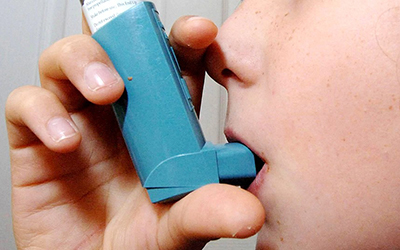 Does your child have asthma? If the answer is ‘yes’, then this short article highlighting a few principles of asthma management may help reduce your child’s acute asthmatic attacks and improve their health.
Does your child have asthma? If the answer is ‘yes’, then this short article highlighting a few principles of asthma management may help reduce your child’s acute asthmatic attacks and improve their health.
Regular monitoring of asthma control and exacerbations
It is important that children diagnosed with asthma are regularly seen by their doctor and not only when they are gasping for breath. This is because the symptoms of asthma need to be monitored to make sure they are well controlled.
Although children with asthma ‘improve’ as they age, poorly controlled asthma can lead to lung damage and increase the risk of a serious asthma attack, which can be fatal.
Ensure correct usage of medication
Treatment for asthma is divided into two categories: ‘relief’ (used when needed) and ‘prophylactic’ (used daily). Some children only require ‘relief’ medications but some also require ‘prophylactic’ treatment, depending on the clinical assessment.
It is imperative that the medication is administered as recommended in the correct way. Children under age 8 usually need a ‘chamber’ to use their asthma medication in the form of ‘metered dose inhaler’ (MDI) to ensure they receive the optimal amount of medication. The ‘chamber’ needs to be well taken care of to make sure it serves its function well.
Without proper administration, the treatment will not be successful even if it is given at the prescribed frequency. Parents are strongly advised not to stop the medication at their own initiative if the child appears ‘well’, unless given the green light by the doctor. Have an open discussion with the attending doctor if you have any questions pertaining to the treatment given.
Mind the surroundings
Some children with asthma are very sensitive to their surroundings. Things that can trigger an asthma attack include cigarette smoke, dust, paint and pet hair. It is essential to take steps to avoid or reduce exposure to these triggering factors in order to prevent an asthma exacerbation.
Increase physical activity
Many believe the old wives’ tale that those with asthma cannot be as active as other children. As a result, children with asthma are denied participation in sports activities or physical education at school.
In actual fact, the objective of treatment is to ensure that asthmatic children are able to play and be active like other kids. Parents are encouraged to discuss any limitations of physical activity with the doctor because there are steps that can be taken to avoid an asthma attack caused by strenuous physical activity.
Keep an asthma diary
Parents are advised to keep an asthma diary to note asthma symptoms as described by the attending doctor. An asthma diary can help evaluate the level of asthma control after a treatment plan has been initiate. Bring this diary along each time you have an appointment with the doctor.
Ask your child’s doctor about the ‘Asthma Action Plan’
This action plan can guide parents on what to do if their child has an asthma attack. It aims to avoid delay in treatment when the child is having an exacerbation. Early treatment can be life-saving. Speak to the attending doctor about a plan suited to your child.
Dr. Alya Hamza is a paediatrician working in Selangor and is currently preparing for her post-graduate examinations in paediatrics. She believes that doctors and patients need to work closely together in paving the way to a good and healthy life. Know more about her in The Team page. This article was translated by Azizul Ismie Mohd Puad from https://www.mmgazette.com/tips-penjagaan-kanak-kanak-yang-lelah-dr-alya-hamzah/
[This article belongs to The Malaysian Medical Gazette. Any republication (online or offline) without written permission from The Malaysian Medical Gazette is prohibited.]
